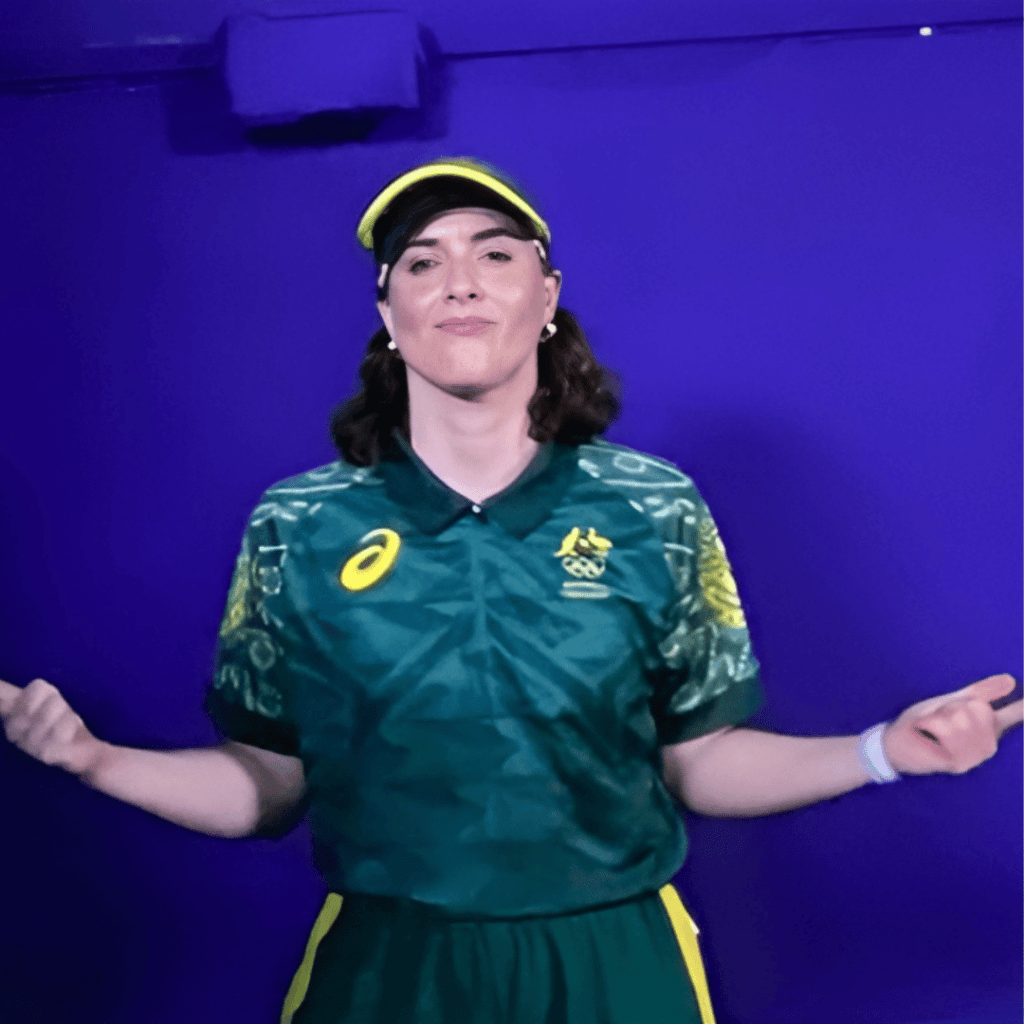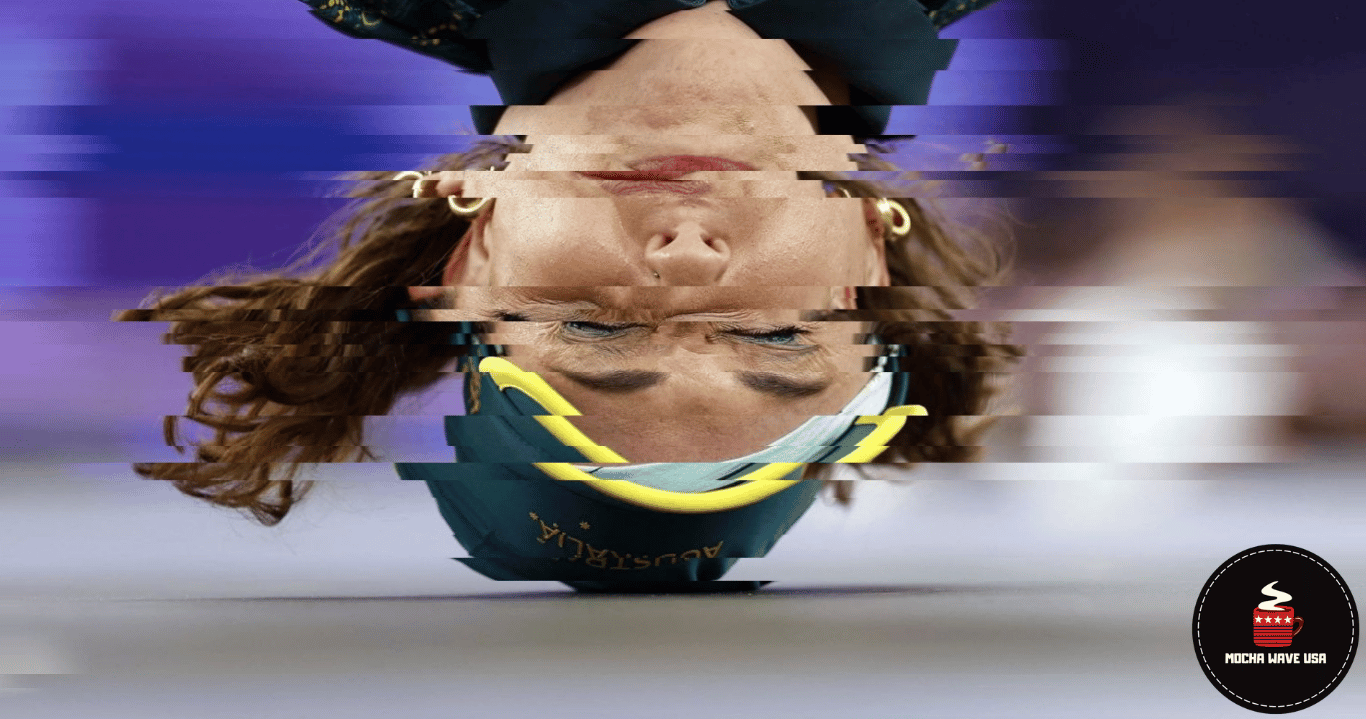(NEW YORK) — When breaking, or breakdancing, made its flashy debut at the 2024 Paris Olympics, the world wasn’t just watching; it was meme-ing, laughing, and, quite frankly, scratching its head. At the center of this unexpected spectacle was the sport’s breakout star, b-girl Raygun—also known as Rachael Gunn—a 36-year-old Australian college professor with a PhD in cultural studies and a repertoire of dance moves that can only be described as, well, uniquely Australian.
Now, before we dive into why Australia might want to reconsider its future Olympic breakdancing aspirations, let’s give credit where it’s due. Raygun went viral, and that’s no small feat in a world where the internet has the attention span of a goldfish. Her performance, complete with “the kangaroo” move, captured the imagination of social media, if not the judges.
Why Australia Should Rethink Sending Breakdancers to Future Olympics
Gunn didn’t just lose in Paris; she was thoroughly, undeniably, and emphatically defeated, scoring 54-0 in her three round-robin battles. That’s right—54 to 0. If there’s one thing Australia excels at, it’s sports. But this time, Australia found itself excelling in the art of not winning, with a precision that could rival even the most committed underdogs.
Raygun’s signature move, dubbed “the kangaroo” by some social media wits, was less about power and more about hopping around like an actual kangaroo. Let’s just say it didn’t quite have the desired effect on the judges, who were presumably looking for something with a bit more oomph and a bit less hopscotch. The internet, however, loved it—though perhaps not in the way Australia might have hoped.
Raygun’s Breakout Moment: When Criticism Goes Viral
As expected, social media had a field day. Some compared Raygun’s performance to watching a child demand your attention for a homegrown dance routine, complete with awkward spins and an enthusiastic—but ultimately baffling—finale. Others thanked her for inspiring the masses to think, “Huh, maybe I can make the Olympics too.”
Australia’s Chef de Mission, Anna Meares, was quick to jump to Gunn’s defense, condemning the online trolls and insisting that Raygun is a beloved Olympic team member. “I love her courage,” Meares declared, though one could argue that courage alone isn’t enough to justify the sight of a mid-30s academic flailing about on the Olympic stage.
The Cultural Politics of Breaking (And Breakdowns)
Gunn herself is no stranger to criticism; as a cultural studies researcher and lecturer at Macquarie University, she’s used to analyzing complex social dynamics. Unfortunately, the complex dynamic here was that the internet couldn’t quite reconcile her academic background with her, let’s say, unorthodox approach to breaking.
Her defense? Creativity. “What I bring is creativity,” she told reporters, standing by her performance. And to be fair, creativity is indeed the backbone of artistic expression. The issue is that in the competitive world of breakdancing, creativity needs to be paired with something resembling skill. While Gunn’s moves were undoubtedly original, it turns out originality doesn’t always translate into points—especially when your competition is full of b-girls who could power-spin their way to victory with their eyes closed.
A Career Built on Breaking
Gunn’s journey into the world of breaking is a story in itself. She transitioned from jazz and ballroom dance into breakdancing in her mid-20s, spurred on by her husband, Samuel, who had been breaking for a decade. It’s the kind of story that’s both inspiring and slightly concerning, given the age-old adage that some things are better left to the young.
Despite starting later in life, Gunn quickly rose through the ranks, becoming the top-ranked b-girl in Australia in 2020 and 2021. She even won the QMS Oceania Championships in Sydney, earning Australia’s first-ever spot in the b-girl competition at the Olympics. It’s a remarkable achievement, no doubt, but one that perhaps underscores the need for a bit more competition within Australia’s breaking scene.

The Future of Australian Breakdancing
Which brings us to the heart of the matter: should Australia continue sending breakdancers to future Olympics? If the goal is to go viral and spark memes, then absolutely. Raygun has shown that Australians have a flair for capturing the world’s attention, even if it’s not for the reasons one might expect.
But if the goal is to, you know, win, then it might be time for a national rethink. Perhaps Australia should focus on sports with a proven track record—like swimming, cricket, or anything that doesn’t involve spinning on your head. It’s not that Australians can’t breakdance; it’s just that, well, maybe they shouldn’t.
The Art of Knowing When to Quit
There’s a fine line between persistence and masochism, and Raygun’s Olympic journey has brought that line into sharp focus. While it’s admirable to pursue one’s passions, even when the odds are stacked against you, there’s also something to be said for knowing when to cut your losses.
The head of the World DanceSport Federation mentioned that officials were looking out for Gunn’s “mental safety” after the online backlash, which is a polite way of saying, “We didn’t see this coming, either.” It’s a reminder that not every Olympic dream ends with a medal—and that’s okay. But it might be time for Australia to reconsider which dreams it invests in.
A Message to Future Breakers
If you’re an aspiring Australian breakdancer reading this, take heart. There’s nothing wrong with pursuing your passion, but maybe keep your Olympic aspirations in check. Or, at the very least, make sure your power moves are, well, powerful.
And for those contemplating taking breakdancing in their mid-30s after reading this, perhaps consider another hobby—one that’s a bit easier on the knees and the ego. There’s always knitting, after all.
Conclusion: The Legacy of Raygun
Raygun’s performance at the 2024 Paris Olympics will be remembered, though perhaps not in the way she intended. She brought creativity, courage, and a whole lot of kangaroo energy to the world stage. And while she didn’t win any medals, she won the internet—a prize that, in some ways, is even harder to achieve.
So, should Australia send more breakdancers to future Olympics? Maybe. But only if they’re ready to bring more than just creativity to the table. Because while originality is great, a few power moves wouldn’t hurt either.
